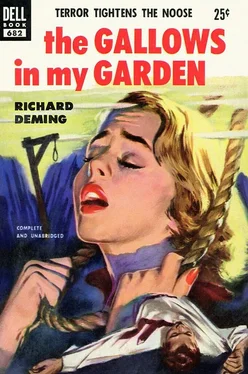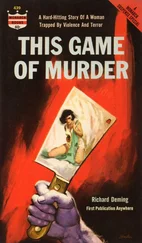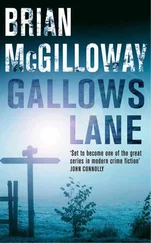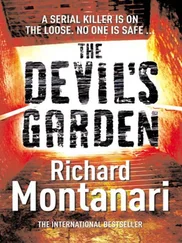“They’re cop killers,” the chief grumbled. “They don’t deserve a chance.”
“You’re running the show,” I told him. “But three people have died in this Lawson affair, and another is hiding out to avoid becoming the fourth. Four people ought to get at least as much consideration as two cops.”
For a moment there was silence. “All right, Manny,” he said suddenly. “How do you suggest we get inside?”
I didn’t like the emphasis he put on the word “we.”
“I’m just a civilian,” I said cautiously. “I’m not supposed to tell cops how to run their business.”
“You used to be in the infantry. Look at it as a tactical problem. The building’s a strong point—”
“You used to be in the infantry, too,” I interrupted. “And you were a major when I was a sergeant. Look at it as a tactical problem yourself.”
“I am,” he said. “They’re both on the roof, we think. Now if we could get inside, we could come up on them from underneath. I figure a heavy covering fire would pin them down until we—”
“Who is this ‘we’ you’re talking about?” I broke in.
“You and me.”
“I’m not a cop!” I hollered.
“You suggested the operation,” he said. “If you want these guys alive, you’ll get in on it. I’m willing to take a chance along with you, but I’m certainly not going to order any of my men in there.” I could almost sense a shrug in his voice. “Of course, I can’t order you in, either. ‘I’ll try it alone. Let me talk to Day again.”
I could feel my ears redden. “Damn you, Chester! Where are you?”
“Southeast corner of Front and Locust. Behind the corner house. Where are you?”
“A block from you, at the intersection north of them. Northwest corner.”
“Let me talk to Day.”
“Cut it out,” I said irritably. “I’ll go in with you. Let me work across the street to the house just north of theirs first, will you?”
“Check. Good boy. Like old times, isn’t it?”
I grunted.
“Let us lay it down for half a minute, then make your run.”
I said, “Check,” and handed the receiver to Hannegan.
Stretched flat, I again poked out my head and viewed the situation. The besieged building had seemed about seventy-five yards away the first time I looked, but now there seemed to be about seventy-five miles between me and it. The roof was flat and ringed by a high edge which formed a protective wall for the gunmen. As I watched I saw a long slim wand of metal which pointed straight up sway gently in the breeze.
Suddenly gunfire crashed from all directions at once, and the side of the building I was watching puffed tiny clouds of brick dust all along its face.
I shouted to Day, “They’ve got a receiving set of some kind up there! They’ve been listening in!”
I saw his lips form “What?” but the roar of battle was too deafening to hear above.
“Never mind,” I yelled at him, rose to a crouch, took a deep breath, and started to run.
For ten yards I ran straight at my goal, then started to zigzag. At the second zag something began to chip holes in the asphalt where my feet had been before I zigged. Above the roar of gunfire I couldn’t hear the weapon firing, but I could see flashes from a ground-floor window, and too many holes were appearing in the street for it to be anything but a Tommy gun.
Fortunately Thompson submachine guns are not very accurate beyond fifty yards. I had started out at what I thought was full speed, but during the second half of the trip I am sure I doubled my rate.
Diving between the two cops stationed behind the corner building, I collapsed with my back to the wall and waited for the barrage to stop. It stopped almost at once, leaving a silence so profound, it almost hurt the ears.
One of the cops had a handset to his ear. “Yes, sir,” he said. Then to me, “They’re starting again in one minute, and they’ll hold their fire to the roof and second floor so as not to hit you and the chief. The chief says both of you will take off for the front door a half-minute after the barrage starts.”
“Tell him,” I said, “they got a receiver up there and are listening in on his instructions. Also at least one of them isn’t on the roof. He’s on the ground floor with a Tommy gun.”
“Huh?” the cop said, and stared at me blankly.
“Tell him to hold the barrage,” I yelled at him.
“Huh? Listen—”
Jumping to my feet, I grabbed the handset from him. “Chief—” I got out, but the rest was drowned by an ear-shattering burst of fire.
I slammed the handset into the cop’s stomach and he said, “Oof!”
I felt like following it with my fist, for in thirty seconds big George Chester would be heading for the front entrance of the besieged building. And inside, waiting for him to come through the door, sat a killer with a submachine gun.
For a moment I hesitated between three possible courses of action. I could head for the hide-out’s front door as planned, I could reverse direction, cut around the back of the building now shielding me and hope to find some way of entering the rear of the hide-out, or I could forget the whole thing and simply stand by while George Chester got himself killed.
The first alternative meant a fifty-yard dash through machine-gun fire. The second meant a slightly longer dash over broken, weed-grown ground which would make for much slower traveling than the smooth sidewalk in front. It also meant running directly under the nose of the rifleman on the roof, since I assumed he would be stationed at the rear of the building as long as his partner covered the front. The third alternative meant I might live longer, but I still had to live with myself.
The sweep hand of my wrist watch told me the barrage had been underway fifteen seconds. Instead of waiting for the full thirty to pass, I turned and raced to the rear of the building. As I rounded the edge, I glanced back out of the corner of my eye just long enough to catch a glimpse of the cop with the walkie-talkie. He was shouting something impossible to hear over the roar of submachine guns, carbines, and riot guns, and pointing in the direction Chief Chester had told me to go.
I didn’t bother to zigzag, hoping that since the besieged killers expected us both from the front thirty seconds after the barrage started, my early start and shift of direction might catch them off guard. The fifty yards from the rear of my building to the rear of the other seemed like fifty leagues. But even though handicapped by a false leg and with knee-high weeds clutching at my trousers and holding me back as though I were wading through water, I am sure I broke world records for the fifty-yard dash with that sprint.
The first-floor window sills were about shoulder-high from the ground, and the corner window facing me was raised from the bottom. As I neared it, I leaped into the air with both my legs and arms stretched out straight toward the side of the building.
The soles of my feet smacked the side of the building three feet off the ground, my knees bent, and my fingers clamped over the sill. I snapped my knees straight again, simultaneously pulled on the sill with all my strength, and literally hurtled into the room. I slid on my stomach across linoleum clear to the far wall.
I was in a kitchen, a fact I discovered by banging my head on a sink as I scrambled erect. At the same time I jerked Mouldy Greene’s .45 from under my arm and swung it at something cowering beneath the kitchen table.
The something proved to be a dumpy and very scared middle-aged woman in a dirty house dress. There was no point in trying to say anything to her, for inside the building the noise was nearly as deafening as outside. And to it was added the crack of bullets smashing into the upper story and the screaming whine of ricochets.
Читать дальше












